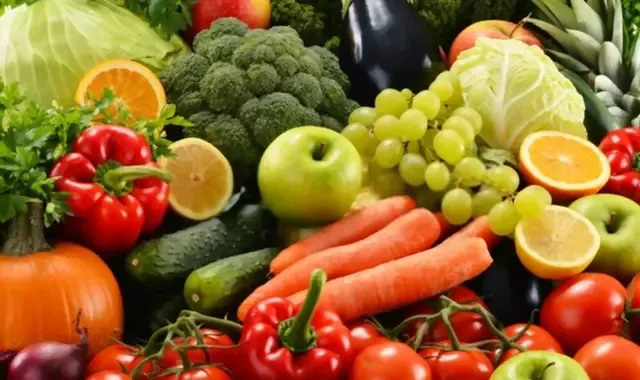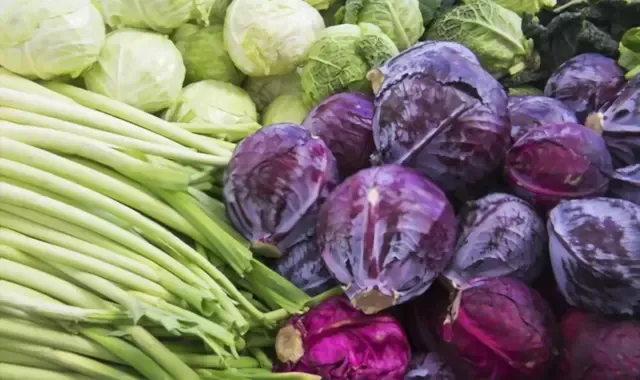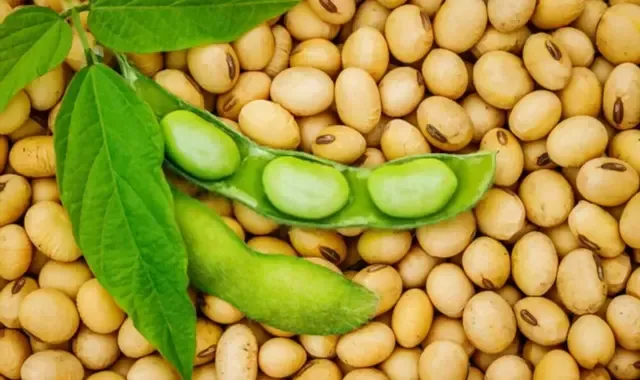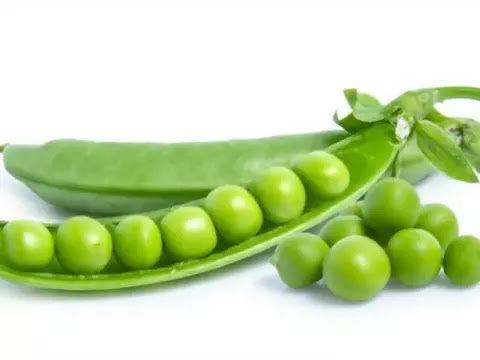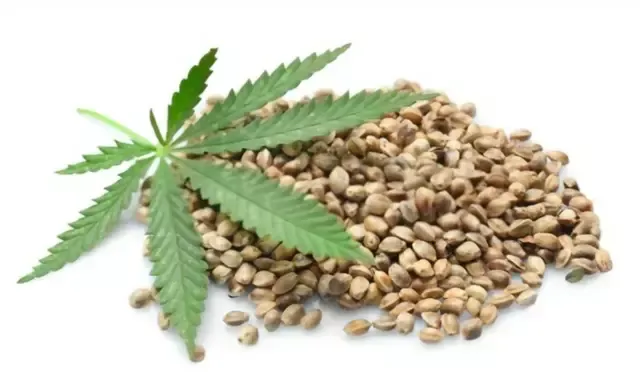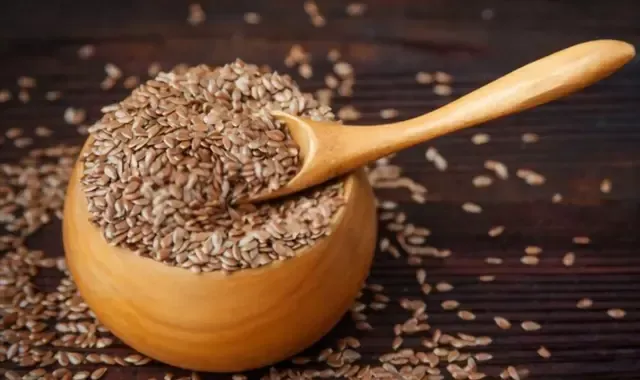When we think about hormones, we often immediately think of acne, obesity, energy crash, depression, anxiety, and infertility.
Even further, we might experience irregular bowel movements irregular menstrual cycles, heightened stress, and general irritability.
Medication can only relieve the symptoms but does not change the situation. Not to mention the enormous side effects that come along with hormone pills.
So, the right nutrition can be your best bet to manage too many or too few hormones.
- How to regulate hormones?
- What are the best foods that balance your hormones?
- How to balance hormones naturally?
1- Organic fruits and vegetables
A diet high in different fruits and veggies will maintain your hormones at an acceptable balance.
Your body requires a significant number of fruits and veggies every day to give you a healthy regulation of hormones.
Research has confirmed that fruits and veggies that use pesticides in the preparation process can cause infertility in humans. Many pesticides display themselves as hormonal disorders.
2- Healthy fats
Fat and cholesterol are utilized in the structure of hormones.
The body requires enough cholesterol to make hormones such as estrogen and testosterone.
It is better to follow a diet with high omega-3 fatty acids and low saturated fats.
Coconut oil is well-known for its beneficial fats.
3- Chicken breast
Do you always eat healthy food but still feel hungry?
So, it's time to add protein-rich chicken to your diet.
Research indicates that high-protein diets release satiety hormones such as leptin, which let us feel fuller for longer.
4- Pomegranate
Pomegranate juice includes anti-inflammatory, anti-cancer, and antioxidant effects that prevent the formation of cancer cells in the skin, breast, and intestines.
One of the body's most potent estrogens, estradiol, is vital in spreading breast cancer cells and many more cancers.
Pomegranate has some natural compounds that prevent the conversion of weak estrogens to estradiol.
5- Cherries
Do you need more sleep?
Cherries will help you.
This fruit is rich in functional chemical compounds.
One of them is melatonin, a natural sleep hormone that rises when you go to bed.
One study found that consuming cherry juice boosted melatonin, improving the length and quality of sleep in men and women.
Melatonin production is necessary for having a night of proper sleep, it also determines the time you fall asleep.
6-Avocado
Avocado is consistently regarded as one of the most nutritional fruits in the world.
Although no super fruit exists, many people believe avocados are super fruits.
Avocados are prosperous sources of healthy fats, fiber, and vital vitamins.
They can balance several hormones and contain minerals like magnesium and potassium.
This fruit has a high level of beta-sitosterol, which has a positive role in blood cholesterol levels and balances the hormone cortisol.
7- Cruciferous veggies
Cruciferous veggies like cauliflower, broccoli, cabbage, kale, arugula, bok choy, Brussels sprouts, and collards are rich in glycosylated, when broken, can alter the metabolism of specific disease-causing hormones.
Research has indicated that high consumption of cabbage vegetables like broccoli reduces the risk of lung cancer.
8- Soy
Soy (and its active hormonal element, isoflavones) has been publicly opposed due to its estrogen-like effects.
The truth is that this substance can be a helpful thing for your health.
A meta-analysis of 15 randomized controlled tests indicated that dietary isoflavones, such as those found in soybeans, lowered the number of hot flashes in women without any severe side effects.
9- Pea
Pea has a mixture of vitamins, especially B vitamins such as B6 and folate, that have various roles in the metabolism of happiness neurotransmitters like serotonin and dopamine.
Phenethylamine, a compound found in peas, promotes the body to make certain chemicals that play an essential role in depression and other psychiatric conditions.
10- Almond
Nuts are among the best options for having a healthy snack. All nuts are tasty and healthy, but the one we will discuss now is almond.
Almonds are rich in many vitamins, like vitamins E and A.
In addition, to be good for your health and many other health benefits, almonds can enhance adiponectin hormone levels.
This hormone is one of the body's most vital hormones because it regulates blood sugar levels.
11- Coconut Oil
Hormones are secreted by glands that may be located far away from the targeted organ.
They have to travel through your system before they actually act.
Studies have shown coconut oil to balance out estrogen levels too in premenopausal women.
12- Hemp Seeds
This can be a highly nutritious addition to your daily diet.
This superfood contains a healthy ratio of omega-6 and Omega-3 fats.
It's usually 3:1. It contains GLA that positively impacts hormonal health.
13- Ghee
This also goes by the name clarified butter.
It provides Vitamins C, K2, and A which are absolutely important for producing hormones.
14- Flax Seeds
Are you having a tough time staying full from your previous meal? Flax seeds are rich in fiber, proteins, and Omega 3 fatty.
15- Brazil Nuts
We get a continuous supply of minerals and trace elements through our everyday diet.
But since the soil quality has depleted over the years, our food actually lacks enough minerals.
16- Eggs
These are the supremely popular and filling breakfast options globally.
You can have them scrambled with toast or boiled, they can be perfect for weekdays or weekends.
17- Salmon
This fatty fish can make a high-protein meal.
It has vitamin D and Omega 3 fatty that can immensely help your body to balance hormones.
Hormonal imbalances can have significant effects on our physical and mental well-being, leading to various health issues.
While medication may provide temporary relief, it often comes with unwanted side effects and does not address the root cause.
Fortunately, the right nutrition can be a powerful tool in managing and balancing hormones naturally.
By incorporating specific foods into our diet, we can support hormonal balance and promote overall health.
Organic fruits and vegetables provide essential nutrients and antioxidants while avoiding harmful pesticides that can disrupt hormone regulation.
Healthy fats, such as those found in avocados, coconut oil, and nuts like almonds and Brazil nuts, play a crucial role in hormone production and regulation.
Protein-rich sources like chicken breast, soy, and eggs help release satiety hormones, keeping us feeling fuller for longer.
Superfoods like pomegranate, cherries, and cruciferous vegetables offer unique compounds that combat inflammation, and cancer, and support sleep quality.
Peas, flax seeds, and hemp seeds provide essential vitamins and minerals that influence neurotransmitters and mood regulation.
Incorporating these hormone-balancing foods into our daily diet can have a positive impact on our overall well-being.
By opting for natural and nutritious choices, we can avoid the drawbacks of hormonal medication and support our bodies in achieving optimal hormonal harmony.
Remember, maintaining a balanced diet and adopting a healthy lifestyle is essential for long-term hormone balance.
Combined with regular exercise, stress management, and sufficient sleep, a holistic approach to hormonal health can lead to improved vitality, mental clarity, and overall wellness.
FAQs
Q: How can I regulate my hormones?
Regulating hormones can be achieved through various means, but one effective approach is through nutrition.
Consuming a balanced diet that includes hormone-balancing foods can help promote hormonal harmony naturally.
Q: What are the best foods to balance hormones?
Several foods can help balance hormones naturally.
Some examples include organic fruits and vegetables, healthy fats like avocado and coconut oil, protein-rich sources like chicken breast and soy, superfoods like pomegranate and cherries, cruciferous vegetables, peas, almonds, and fatty fish like salmon.
Q: How can I balance hormones naturally?
Balancing hormones naturally involves adopting a holistic approach.
Along with incorporating hormone-balancing foods into your diet, it's important to engage in regular exercise, manage stress levels, ensure sufficient sleep, and maintain a healthy lifestyle overall. These factors, combined with proper nutrition, can support hormonal balance.
Q: Are organic fruits and vegetables beneficial for hormonal balance?
Yes, organic fruits and vegetables are beneficial for hormonal balance. They provide essential nutrients and antioxidants without the harmful effects of pesticides, which can disrupt hormone regulation and potentially lead to hormonal disorders.
Q: Can healthy fats help balance hormones?
Yes, healthy fats play a crucial role in hormone production and regulation.
Consuming foods rich in healthy fats, such as avocados, coconut oil, and nuts like almonds and Brazil nuts, can support hormonal balance.
Q: How do protein-rich foods contribute to hormonal balance?
Protein-rich foods like chicken breast and soy can release satiety hormones, such as leptin, which help you feel fuller for longer.
Including these foods in your diet can contribute to hormonal balance by regulating appetite and promoting overall well-being.
Q: Can superfoods help with hormone balance?
Yes, superfoods like pomegranate, cherries, and cruciferous vegetables contain unique compounds that can combat inflammation, support sleep quality, and provide antioxidant and anti-cancer effects.
Incorporating these superfoods into your diet can contribute to hormonal balance.
Q: Do lifestyle factors affect hormonal balance?
Yes, lifestyle factors play a significant role in hormonal balance.
Engaging in regular exercise, managing stress levels, getting sufficient sleep, and maintaining a healthy lifestyle overall is essential for supporting optimal hormonal harmony.
Q: Are there any side effects associated with hormone pills?
Yes, hormone pills often come with unwanted side effects.
While they may provide temporary relief from symptoms, they do not address the root cause of hormonal imbalances.
Opting for natural methods, such as proper nutrition, can help manage hormones without the potential side effects of medication.
Q: Can adopting a balanced diet alone restore hormonal balance?
While adopting a balanced diet is a crucial component of restoring hormonal balance, it is recommended to combine it with other lifestyle factors such as exercise, stress management, and sufficient sleep.
Taking a holistic approach is key to achieving long-term hormonal harmony.

